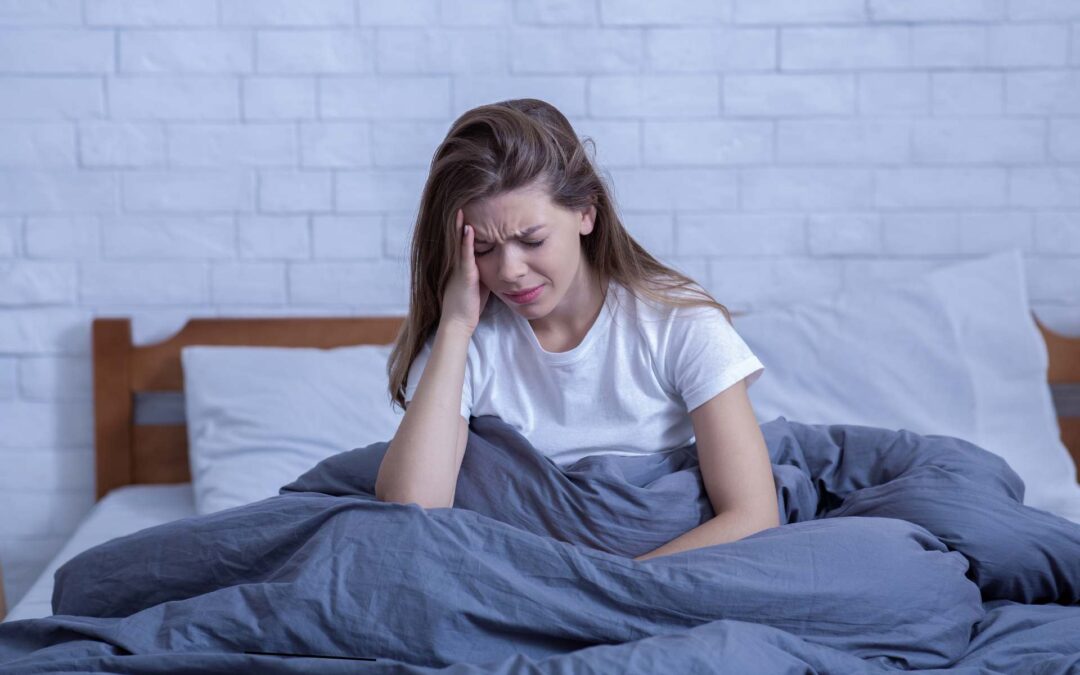There are a lot of reasons why we don’t get to bed on time. When we are younger, the reason may be more about defying parental rules than anything else, but later in life, other factors may impact our increasingly late bedtimes. Some of those may be the inability to put down the book you’re reading, accidentally bingeing the entire second season of Severance in one sitting, or a night out with friends at the new bar in town. Other reasons may be restlessness, replaying conversations in your mind, or anxiety over a big presentation at work. It’s extremely common to have trouble getting to sleep or to have trouble staying asleep. Whether you are getting a full night’s rest or not, sleep plays a pivotal role in our mental health.
While some people swear up and down that they thrive on 5 hours of sleep, that is likely not the example the common person should follow. While it’s true that there are a wide range of individual differences and one person’s biology can vastly differ from the next, there are a couple of key metrics to keep in mind. The first is the number of hours you spend asleep — this is the easiest metric to track, and the average person should aim to get between 7 and 9 hours per night. Some other metrics that are admittedly more difficult to track are REM (Rapid Eye Movement) sleep and deep sleep, and each of them play important roles in our health. REM sleep helps with emotional processing, brain development, and memory consolidation, while deep sleep helps with physical and mental restoration, immune function, and hormone regulation. If you have any sort of fitness watch, it probably has some sleep tracking functionality. And to nip one objection in the bud, sleeping more on the weekends isn’t an effective way to ‘catch up’ on the sleep you miss out on during the week!
Understanding all of that is great, but how do you know if a lack of sleep is affecting your daily life (and your mental health)? One indicator is if you find yourself having “one of those days” quite often. You know the ones — days when you’re feeling more irritable, less patient with those around you, and more prone to mood swings. Lack of sleep may also be the culprit behind symptoms like brain fog, difficulty focusing on tasks, forgetfulness, and general mental sluggishness. Lastly, in this non-exhaustive list, is change in motivation. If you’re struggling to stay engaged or losing interest in your hobbies, lack of sleep may be the culprit.
It may feel overwhelming to learn that difficulties in your life are caused by lack of or insufficient sleep, especially if you don’t know how to start changing your habits for the better. Here are some simple, concrete ideas that may help:
- Control the environment: Comfort is important, so make sure you have a high-quality mattress, bedding, and pillows. Darkness is ideal, so if there is city light streaming in through your windows, a sleep mask may be helpful. Keeping your house chilly at night can also aid in more restful sleep, so try keeping it below 67 degrees Fahrenheit.
- Limit caffeine intake: It may be difficult to limit caffeine for a few reasons: it’s delicious, it’s often present in social settings, and you’re tired! However, avoiding caffeine in the afternoons can allow your body time to fully process the caffeine before attempting to fall asleep.
- Try some mindfulness: If your mind does not slow down at bedtime, try diverting your attention to a body scan. You can do this on your own or with the help of a guided meditation from YouTube or a meditation app. Body scans focus your awareness on physical sensations and allow you to take a step back from the stresses of your day.
Don’t overwhelm yourself by trying to implement too many ideas at once. Identify the 1 or 2 that feel most approachable for you and then give it a try for a week. If you feel more rested, great! If not, don’t worry, there are plenty more techniques to try. Finally, it’s important to understand that if you’re not able to improve your sleep using these techniques, it is not the end of the road. Speak with your doctor to see if medication may be a suitable option to try. Sleep is one of our most valuable resources, and it touches almost every aspect of our lives, so let’s work toward more restful sleep together!

